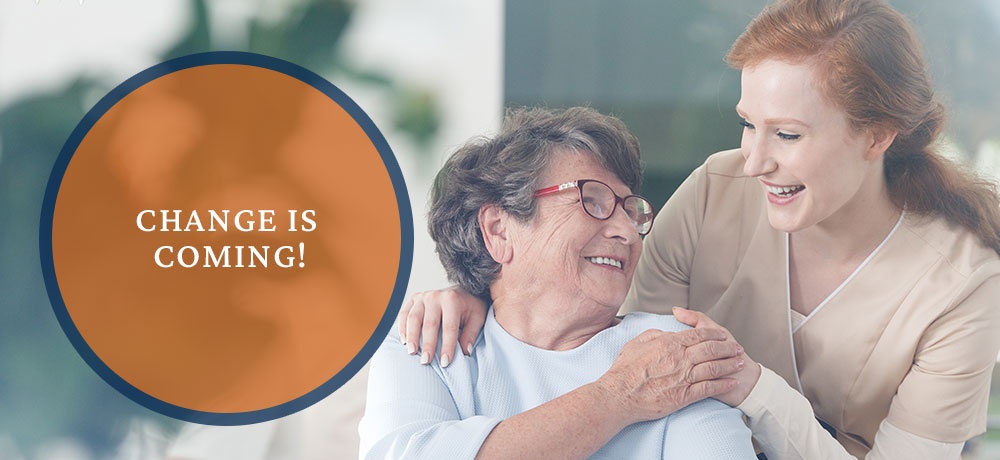Change is coming!

Have you noticed there are a few hints out there that fall is coming? Perhaps it is the children wearing backpacks, school buses appearing on the streets, or parents shopping for back-to-school items. Are some of the trees in your neighborhood beginning to change color? Have you noticed an afternoon breeze kicking up, or enjoyed a cool morning lately? If you have been shopping recently, you may have seen pumpkins and other fall décor making an appearance on store shelves. Even Krispy Crème has introduced the pumpkin spice version of their popular donuts just this past week.
After the slower pace of summer, warm weather, vacations, and a break from routines, many of us are looking at our schedules, thinking about refocusing our goals while we plan for fall. For those of us with elderly loved ones, this is also a good time to evaluate how they are doing. Every year that goes by for an aging family member can result in subtle changes providing clues that some help at home is needed. Being observant and asking the right questions can help protect your loved ones and improve the quality of their lives. Here are a few common signs that someone may need assistance at home.
Have you noticed a lack of personal hygiene? This could be a sign that caring for their personal needs has become difficult. Whether it is bathing, brushing teeth, getting dressed, grooming, or washing clothes, difficulty with these simple tasks are often some of the first signs that help is needed.
Have you discovered spoiled food in the kitchen or refrigerator? Has there been weight loss? This could indicate a loved one’s inability or hesitancy to go to the grocery store, or prepare fresh food. Caregivers can help with shopping, meals, and cleaning, helping seniors stay healthy and age well.
Is there a change in how your loved is handling their mail, unpaid bills, or correspondence? If you see stacks of unsorted mail or they express confusion or frustration at doing paperwork or managing a budget, it may be a subtle cry for help that these tasks are becoming difficult for them. A caregiver can help in sorting out junk mail from important mail so you loved one knows where to begin.
Are there unexplained bruises or evidence of a fall? Most seniors fear their loss of independence and may not want to tell you about a fall, so asking questions and careful observation is critical. Throw rugs, uneven flooring, stairs, bathtubs, and clutter can increase the risk of falls, which can lead to life changing injury. A caregiver is trained to help identify fall risks, assist with transitions, and make those kinds of injuries less likely.
Have you noticed your once social loved one feeling anxious or lonely? Is there a loss of interest in hobbies or getting together with friends or loved ones? This could indicate depression or loneliness, leading to isolation. We all need to be loved and we all need to be with people who care about us. Bringing a caregiver alongside for a few hours several times a week can break that pattern of isolation while providing companionship, encouragement, and laughter.
Does your loved one express difficulty with activities of daily living, or do you have a sense there is a need in that area? From personal care to running errands, or providing household maintenance, a caregiver can help with the many necessary parts of living independently, and in doing so, help a senior stay safe and content in their home.
At Great Life Senior Care, we understand that watching a loved one lose independence can be very hard. It requires compassion, understanding, wisdom, and sometimes intervention. Most families don’t have the time and resources to provide consistent care for their aging loved ones. If you would like to know how we can come alongside to help, please call Jason White, for a free in-home assessment. If you have questions about options, or just need to chat with someone who is knowledgeable and passionate about seniors, you can reach him at (951) 679-9592.
Anita White, Contributor
Great Life Senior Care.
